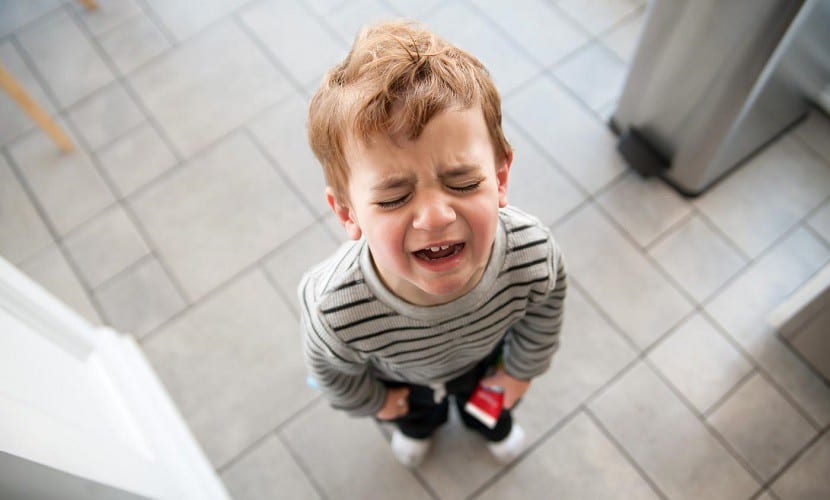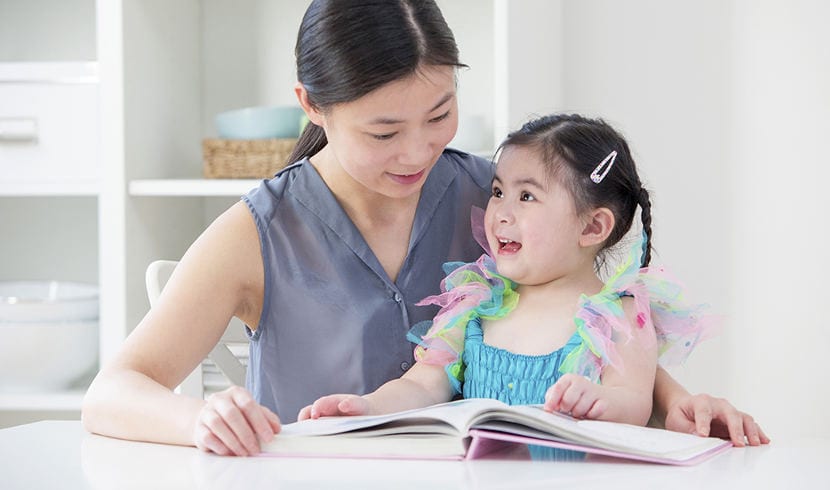
There are many people who mislabel children as 'bad' or 'unstable'. But what people forget is that first, children should not be labeled, and second, that children are not bad or unstable (none of them). Children are not born knowing how to regulate their emotions, nor do they understand them and they need constant guidance and support to achieve this.
Many parents can feel somewhat insecure when it comes to helping their children regulate their emotions since it is not easy for many parents to achieve it themselves. It is important to know the evolution of children and the origin of emotions in order to guide children to be able to have good emotional regulation. Know some keys to achieve it.
Keys to improving children's emotional regulation
Be a good example of emotional regulation
If you want your child to learn to regulate emotionally, the most important thing is that you be a good example of emotional regulation. If you don't want your child to lose their temper yelling, don't do it first. If you want your child to calm down and look for solutions to everyday conflicts in life, then they should see in you a good example of finding solutions both in everyday life and in the most important conflicts that may arise in life. Be their example and they will learn the best from you, be a bad example and they will learn the worst, also from you.
Put words to emotions
In order to regulate emotions, it is necessary for children to learn to put words to emotions, that they know how to identify them and talk about them. An angry child must be able to say that he is angry and look for the cause that has made him angry, in this way he will be able to find solutions that return him to a state of calm and fullness. What's more, You will feel the power of self-control, essential to be able to feel more confident in your own decisions.

Take into account their prefrontal cortex
When children become very irritated or behave impulsively, it is necessary to work with them taking into account their prefrontal cortex and calm. Young children still have a developing brain and this is one of the reasons why they can act impulsively, being carried away by the most intense emotions. That is why it is important that you teach him to remain calm by being his supportive presence ... Little by little, iThey will learn that ability from themselves. He continues to maintain limits at home, talk things over with open communication and sometimes, even if chaos occurs, allow him to feel and be by his side to improve his peace of mind.
Change focus
For children to learn they will need to understand their strengths and the points where they would need a little more support. If your little one needs an apprenticeship to regulate their emotions, they'll need you by their side to learn this skill. They will need your care instead of labeling their bad behavior. Changing the focus from a bad behavior has to be changed to a skill needs to be strengthened ... It seems the same, but the change is abysmal ... You will be giving your child more power. Your child needs to feel like you are on his team and not that you are against him.
Teach them a learning bridge
Children need you to provide a bridge between what they know and what they are capable of doing through the skills they need to learn. Give your child strength so that he knows how to move forward, knowing where to walk. Children must learn to find the words to use to express what they feel, they do not need you to run to solve the situation for them.
Your child will need you to listen to him and feel validated. Talk to him about what happened and how he feels, make suggestions for improvement. The idea is that the next time a conflict arises, the child will be able to remember these things in order to better handle the situation.

A little stress
It's a good idea to gently expose children to small amounts of stress to help them learn to regulate themselves. A controlled stress but that serves to empower children, to be able to work on the recognition of emotions and also, so that they are able to seek solutions and that in the future, they can apply them whenever necessary. The brain learns with experiences and the more experiences, the stronger your child will be and the better he will learn to regulate himself emotionally. In these stressful situations, you should be guided by affection and respect.
Teach them to look with perspective
This is a very valuable skill for both children and teenagers. Looking in perspective is like taking a step back between them and their behavior. A step back so big that you can see what happened from another perspective, as if they were spectators of what has happened. When an incident of great emotion has occurred and the children are on their way to find calm, they can be asked to imagine taking a step back so that they can see what happened as if it were a movie.

You can tell them things like: 'If someone else was doing what you were doing, what would you think of him?' 'What do you think he is feeling / thinking / needing?' 'What would you like to say to him?' This is a great skill that will build empathy and strengthen that part of the brain that can look logically and rationally in a situation. Don't worry if you immediately get your children to learn to look in perspective, they need a little practice to do so. The more opportunities you have to practice it, the more you will be able to do it yourself over time.
In addition, it is very important to give them the opportunity to be able to reflect on what has happened and why it has happened.